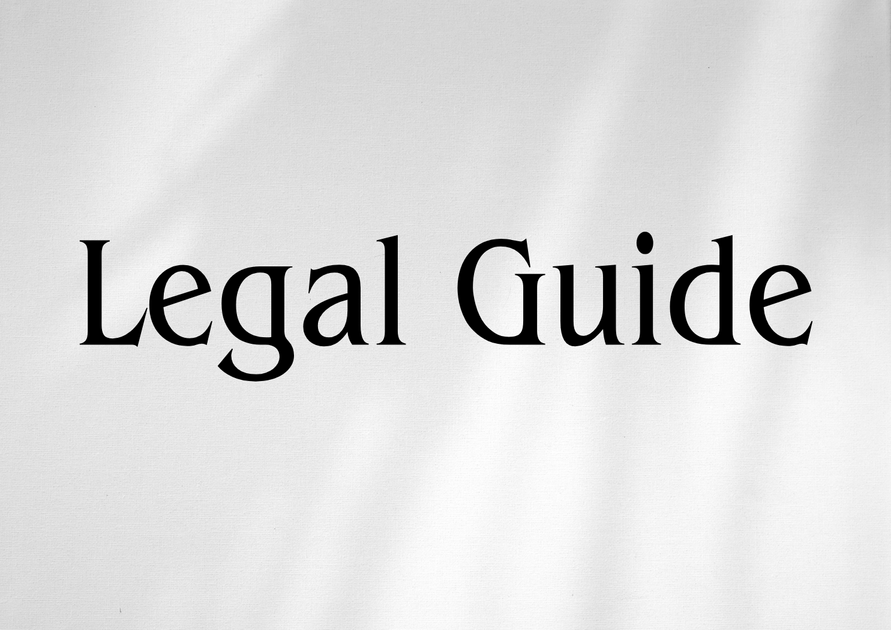Introduction: Navigating Dispute Resolution in the UAE’s Dynamic Legal Landscape
The United Arab Emirates has rapidly evolved into a premier hub for international business, commerce, and investment. As a result, the demand for robust, efficient, and credible dispute resolution mechanisms is at an all-time high. Arbitration, as a preferred alternative to litigation, is not only recognized by the UAE judiciary but also reinforced through a comprehensive legal framework in alignment with international best practices.
With Federal Law No. 6 of 2018 on Arbitration and subsequent updates—backed by the UAE Ministry of Justice and guidance from the Federal Legal Gazette—the UAE underscores its commitment to modern, consistent arbitration standards. For businesses, executives, and legal advisers operating in the UAE, the choice of arbitration centre can significantly influence not only the course of a dispute but also its overall outcome, enforceability, and cost-effectiveness. This professional guide delves into the legal, procedural, and practical factors businesses must evaluate when choosing an arbitration centre in the UAE, highlighting the most recent updates, compliance risks, and best-practice recommendations.
Table of Contents
- The Legal Framework for Arbitration in the UAE
- Overview of Leading Arbitration Centres in the UAE
- Key Legal Considerations When Choosing an Arbitration Centre
- Regulatory Changes: Old vs. New Arbitration Laws
- Case Studies and Practical Examples
- Risks of Non-Compliance and Compliance Strategies
- Professional Recommendations and Compliance Checklist
- Conclusion and Future Outlook
The Legal Framework for Arbitration in the UAE
Modern Legal Foundation: Federal Law No. 6 of 2018 on Arbitration
The principal source governing arbitration in the UAE is Federal Law No. 6 of 2018 on Arbitration (the “UAE Arbitration Law”), which aligns closely with the UNCITRAL Model Law and reinforces party autonomy, efficiency, and judicial support in arbitral proceedings. The legislation explicitly supersedes outdated provisions under the UAE Civil Procedure Code, offering clarity on issues such as:
- Enforceability of arbitration agreements
- Appointment and removal of arbitrators
- Arbitral proceedings and interim measures
- Recognition and enforcement of arbitral awards
Recent Cabinet Resolutions, such as Cabinet Resolution No. 57 of 2018 and guidance from the Ministry of Justice, further encourage the use of arbitration by streamlining procedures for enforcing arbitral awards and reinforcing the judiciary’s supportive role.
Special Free Zone Regimes: DIFC and ADGM Laws
Notably, arbitration conducted within the Dubai International Financial Centre (DIFC) and Abu Dhabi Global Market (ADGM) is subject to their own unique legal regimes:
- DIFC Arbitration Law (Law No. 1 of 2008): Independent, internationally focused, and based on the UNCITRAL Model Law, with English as the default language.
- ADGM Arbitration Regulations 2015: Innovative, internationally harmonized, granting autonomy and direct enforceability of awards within and outside the free zone.
The co-existence of onshore and free zone arbitration regimes in the UAE creates both opportunities and complexities, especially as recent updates seek to enhance coordination and reduce forum shopping risks.
Overview of Leading Arbitration Centres in the UAE
Parties in the UAE can choose from a range of reputable arbitration centres, each with its own strengths, rules, and suitability for different types of disputes. The most prominent centres are:
- Dubai International Arbitration Centre (DIAC)
- Abu Dhabi Commercial Conciliation and Arbitration Centre (ADCCAC)
- Dubai International Financial Centre – LCIA Arbitration Centre (DIFC-LCIA) (Note: As of 2022, DIFC-LCIA has been consolidated into DIAC, see below)
- Abu Dhabi Global Market Arbitration Centre (ADGMAC)
Each institution offers distinct features in terms of rules, panel of arbitrators, language, transparency, accessibility, and international recognition. Recent reforms, particularly the consolidation and streamlining of DIAC’s operations, have reshaped the landscape and directly impact parties’ strategic choices.
1. Dubai International Arbitration Centre (DIAC)
Established under Decree No. 34 of 2021, DIAC is the largest and most established arbitration institution in the UAE. With the absorption of the DIFC-LCIA caseload, DIAC has reinforced its position as a one-stop shop for both onshore and offshore disputes, offering:
- Flexible rules—2022 DIAC Arbitration Rules introduced expedited proceedings and digital filings
- State-of-the-art hearing facilities
- Access to bilingual panels experienced in regional and international disputes
- Cost-effective fee structure
2. Abu Dhabi Commercial Conciliation and Arbitration Centre (ADCCAC)
ADCCAC, established under the Abu Dhabi Chamber of Commerce, focuses on commercial disputes and offers conciliation in addition to arbitration. Its procedural rules emphasize speed and cost efficiency, making it suitable for domestic and GCC-related commercial matters.
3. Abu Dhabi Global Market Arbitration Centre (ADGMAC)
Operating under the internationally oriented ADGM legal framework, ADGMAC offers flexible rules in line with the UNCITRAL Model Law and full recognition of awards internationally. Proceedings may be conducted in English, attracting parties with international operations.
Visual Suggestion
Insert a comparative table/chart summarizing key features of each centre: rules, language, fee structure, enforceability scope, and notable strengths.
Key Legal Considerations When Choosing an Arbitration Centre
Recognition and Enforceability of Arbitration Awards
Enforceability is a paramount consideration. The UAE is a signatory to the 1958 New York Convention, facilitating recognition of arbitral awards in over 160 countries. However, enforceability can depend on:
- The seat of arbitration (onshore vs. free zone)
- The governing arbitration rules
- Compliance with UAE procedural requirements, particularly the authentication of the arbitration agreement
- Recent court precedent (e.g., Dubai Court of Cassation and DIFC Courts) on award enforcement
Choice of Forum: Onshore vs. Offshore
Disputes seated in the DIFC or ADGM enjoy a high degree of international enforceability, English-language process, and minimal interference from onshore courts. Conversely, for transactions and parties based within mainland UAE, DIAC and ADCCAC may offer greater familiarity and faster local enforcement procedures.
Language, Neutrality, and Specialist Panels
Party preferences regarding language (Arabic or English), neutrality (local vs. international arbitrators), and specialized industry expertise should guide the choice of centre and the drafting of the arbitration clause. For example, ADGMAC and DIAC offer broad panels of both international and regional experts, enabling tailoring to the dispute at hand.
Administrative Efficiency and Cost
Updated rules and digital processes, particularly under DIAC’s 2022 framework, have reduced hearing times and costs. Understanding fee schedules and expedited procedures is critical for organizations seeking predictability in dispute resolution.
Regulatory Changes: Old vs. New Arbitration Laws
The UAE’s arbitration framework has undergone substantive reform in recent years. The table below contrasts key provisions under prior and current laws:
| Aspect | Pre-2018 Law (Civil Procedure Code) | Post-2018 Law (Federal Law No. 6/2018 & Decrees) |
|---|---|---|
| Arbitration Agreement Validity | Written form strictly required, ambiguous treatment | Clarified scope, supports electronic agreements, party autonomy enhanced |
| Appointment of Arbitrators | Court intervention frequent, less autonomy to parties | Default processes, court support limited to specific cases |
| Conduct of Hearings | In-person hearings, limited recognition of virtual/online | Express recognition of remote hearings and digital evidence |
| Enforcement of Awards | Lengthy process, frequent grounds for challenge | Streamlined “ratification” process, reduced challenge grounds |
| International Standards | Divergence from UNCITRAL Model | Full alignment with Model Law, recognized internationally |
These updates, coupled with institutional reforms and court guidance, have elevated the UAE’s attractiveness as a seat of arbitration for global commerce.
Case Studies and Practical Examples
Case Study 1: Cross-Border Joint Venture Dispute
A European company and an Emirati conglomerate included a DIAC arbitration clause in their joint venture agreement. When a breach arose, the DIAC tribunal provided a bilingual panel and managed virtual hearings amid COVID-19 travel restrictions. The resultant award was enforced swiftly via Dubai Courts under Federal Law No. 6 of 2018, demonstrating the efficiency of the updated legal regime and DIAC’s operational adaptability.
Case Study 2: Technology Contract in the ADGM
A cross-border licensing contract between an Abu Dhabi-based tech firm and a Singaporean vendor adopted ADGMAC Rules and the ADGM seat. Proceedings were conducted in English and involved expert testimony by a panel of technical specialists. When the award favored the UAE party, enforcement in Singapore was achieved with minimal delay, facilitated by New York Convention mechanisms.
Lessons and Strategic Guidance
- Selecting an arbitration centre whose rules and language align with the parties’ expectations reduces procedural disputes and challenges to enforceability.
- DIFC and ADGM arbitration awards can often be enforced in mainland UAE through reciprocal jurisdiction arrangements with the local courts—accelerating resolution and curbing post-award litigation.
Risks of Non-Compliance and Compliance Strategies
Legal Risks for Businesses and Executives
- Improper Arbitration Clauses: Poorly drafted or ambiguous clauses risk jurisdictional challenges or outright refusal of enforcement by UAE courts.
- Failure to Select the Appropriate Venue: Choosing a forum without consideration of local enforcement or regulatory requirements may lead to prolonged, costly litigation, or unenforceable awards.
- Non-Recognition of Procedures: Failing to comply with mandatory procedural rules—such as notifying the respondent or selecting neutral arbitrators—may undermine the award.
Compliance Strategies
- Engage UAE-qualified legal counsel when drafting arbitration clauses, referencing the applicable law, seat, language, and rules in detail.
- Regularly review and update standard contracts to reflect current laws and institutional rules, especially following major legal updates.
- Train executive, legal, and HR teams to identify and manage pre-dispute issues—such as notice requirements and document retention under UAE law.
- Monitor the evolving landscape of UAE arbitration law, including key rulings from the Dubai and Abu Dhabi courts, as these can set crucial precedents for future cases.
Professional Recommendations and Compliance Checklist
Best-Practice Recommendations
- Customize Arbitration Clauses: Avoid generic clauses; reference the chosen centre, applicable rules, and seat of arbitration.
- Consider the Nature of the Dispute: For complex or cross-border disputes, DIAC, ADGMAC, or international options are preferred. For purely domestic disputes of lesser quantum, ADCCAC may provide efficiency.
- Prioritize Enforceability: Confirm that the chosen centre’s awards are easily recognized by local and foreign courts under current international treaties (notably, the New York Convention).
- Plan for Practicalities: Factor in administrative support, venue accessibility, digital capabilities, and expert availability.
Compliance Checklist for Choosing an Arbitration Centre
| Key Compliance Questions | Considerations |
|---|---|
| Is the arbitration clause valid under UAE law? | Drafted/witnessed in compliance with Federal Law No. 6/2018? |
| Have parties agreed on the rules, seat, and language? | Clearly specified in the agreement? Bilingual if needed? |
| Is the chosen centre’s award enforceable locally and abroad? | Includes reference to New York Convention/case law support? |
| Are institutional rules up to date/reflective of current practice? | Reference to the 2022 DIAC rules or recent ADGM changes? |
| Is panel expertise sufficient for the dispute nature? | Industry specialists available in the institution’s roster? |
Visual Suggestion
Insert a process flow diagram: “Five Steps to Effective UAE Arbitration Centre Selection”.
Conclusion and Future Outlook
The arbitration framework in the UAE is now among the most sophisticated and business-friendly in the region, reflecting continuous modernization through legislative updates, institutional mergers, and digital innovation. For organizations and executives, the implications are clear: prudent selection of the arbitration centre—grounded in current UAE law, organizational needs, and enforceability concerns—is a critical factor in safeguarding business interests and maintaining compliance.
As the UAE’s commercial environment matures, further enhancements to arbitration law are anticipated, ensuring increased alignment with global standards and greater efficiency for all stakeholders. To future-proof dispute resolution strategies, businesses should:
- Regularly audit and update dispute resolution clauses in contract templates
- Retain specialized UAE legal counsel for pre-dispute strategic advice
- Engage with the latest legal and procedural developments from official UAE sources
By remaining proactive, organizations can leverage the UAE’s world-class arbitration infrastructure to resolve disputes rapidly and with minimal risk, protecting investments now and in the years to come.




